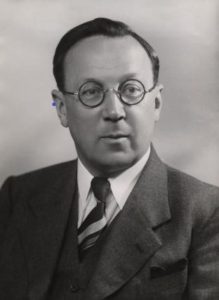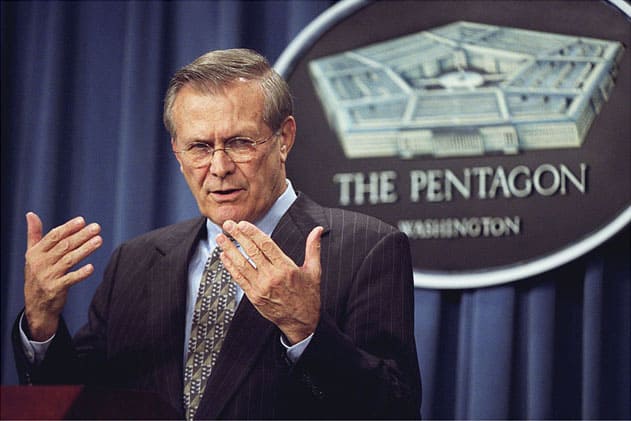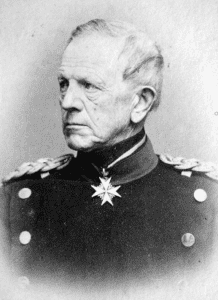Here at On a Back of an Envelope we like to honour individuals both real and fictional who have added to our understanding of Project Management or have offered an insight into the way the project world works.
Sir Robert Watson-Watt, 1892-1973

Sir Robert Watson-Watt was a British scientist and a pioneer of radar technology in the lead up to the Second World War. Often mistakenly referred to as the inventor of radar he took what was an embryo technology to create a practical system to detect aircraft. This became the Chain Home network of radar stations which ran along the length of Britain’s east coast and was an important part of the country’s air defence contributing to the RAF’s 1940 victory in the Battle of Britain.
A notable aspect of his character was his pragmatism – he was a realist and he rejoiced in what he termed ‘the cult of the imperfect’. His view when delivering to his government and military masters was:
Give them the third best to go on with; the second best comes too late; the best never comes
These days we might use the more succinct aphorism, ‘Perfect is the enemy of good’.
The adoption of Agile development within project management is often thought of as a modern invention following the publishing of the Agile Manifesto in 2001 but Watson-Watt’s approach shows us that he fully understood Agile principles even if he wouldn’t have labelled them as such.
He and his team would create a prototype to produce what we would describe as a Minimum Viable Product (MVP) – a version of the product with just enough features to be usable by early customers who can then provide feedback for future development. An MVP will create a product with minimal resources quickly to gain early feedback reducing wasted effort, accelerate learning and gain customer/user engagement. The first successful demonstration of aircraft detection by radio waves bouncing off them was on the 26th February 1935 by Watson-Watt and Arnold Wilkins in a remote field in rural Northamptonshire using a very ‘Heath Robinson’ setup and where there is now a memorial plaque.
At the end of the war, Professor E.V. Appleton made a submission to the Royal Commission on Awards to Inventors and said of Watson-Watt’s contribution to the development of radar, ‘…the biggest effort of all was being made by Watson-Watt in pleading, advocating, getting stores, masts and buildings. It was above all due to his drive and powerful advocacy that we had radar stations around our coast when war broke out… He had the vision of what it all implied, he just burned with it. [He] deserves a very substantial reward for his work in turning scientific radar into practical radar…
Today, we would recognise these qualities in every successful project manager.
Donald Rumsfeld, 1932-2021

Donald Rumsfeld was an American politician and businessman who served as Secretary of Defense in the Gerald Ford and George W. Bush administrations. Although not the originator of the concepts – known knowns, known unknowns and unknown unknowns – he brought this to popular attention.
Reports that say that something hasn’t happened are always interesting to me, because as we know, there are known knowns; there are things we know we know. We also know there are known unknowns; that is to say we know there are some things we do not know. But there are also unknown unknowns – the ones we don’t know we don’t know. And if one looks throughout the history of our country and other free countries, it is the latter category that tend to be the difficult ones.
The ideas are based on the Johari window. The Johari Window model is a simple and useful tool for illustrating and improving self-awareness, and mutual understanding between individuals within a group. The model is based on a 2 x 2 matrix that compares self and others versus known and unknown knowledge. Created by psychologists Joseph Luft and Harrington Ingham in 1955. Luft and Ingham called their Johari Window model ‘Johari’ after combining their first names, Joe and Harry.
For us as project managers, known unknowns refers to risks that we can identify and need to track, and unknown unknowns are those risks which are unforeseeable and which have a habit of blind-siding even the most experienced of us.
Despite being the butt of much humour over the years, Rumsfeld named his autobiography Known and Unknown: A Memoir and in 2013 Errol Morris produced a biographical documentary about Rumsfeld entitled The Unknown Known.
Helmuth von Moltke, 1800-1891

Helmuth Karl Bernhard Graf von Moltke was a German Field Marshal, the chief of staff of the Prussian Army for thirty years. He was instrumental in developing a system for the Prussian military in the 1800s that could deal with the uncertainty of the battlefield and is regarded as the creator of a new, more modern method of directing armies in the field.
Moltke’s famous observation that ‘no plan of operations extends with certainty beyond the first encounter with the enemy’s main strength’ is more usually represented as,
“no plan survives contact with the enemy”
and is a reminder to every project manager that plans need to take note of changing circumstances.
Moltke’s view was that military strategy had to be understood as a system of options since it was only possible to plan the beginning of a military operation. The main task of a leader was to make extensive preparation of all the possible outcomes which led him to state that,
“Strategy is a system of expedients”
Prussian military strategy in the mid-19th century was surprisingly modern in outlook. Stephen Bungay in his book, The Art of Action, describes it thus:
‘Mission command is built on three important principles that guide the way leaders direct their people.
- Do not command more than necessary or plan beyond foreseeable circumstances.
- Communicate to every unit as much of the higher intent as is necessary to achieve the purpose.
- Ensure that everyone retains freedom of decision within bounds.’
Modern project management encapsulates these principles in rolling wave planning, empowerment, product variation and project tolerances.
Moltke has another claim to fame having recorded some excerpts from Shakespeare and Goethe on two cylinders on Edison’s newly invented cylinder phonograph in 1889. These are the only known voice recordings from someone born as early as 1800.
To show how relevant Moltke’s famous quotation is in the modern world, we only need to turn to heavyweight boxer Mike Tyson’s streetwise observation,
“Everyone has a plan ‘till they get punched in the mouth”
Publilius Syrus, 85 – 43 BC

Publilius Syrus was a Syrian who was brought to Italy as a slave but by his wit and talent he won the favour of his master who freed and educated him. He became famous as a writer for his sententia which are brief moral sayings, proverbs and maxims.
His most popular is
A rolling stone gathers no moss
meaning that ‘people who are always moving, with no roots in one place or another, avoid responsibilities and cares’.
But his understanding of project management comes with this piece of wisdom,
It is a bad plan that admits of no modification
Large projects and particularly public sector projects have a life and a momentum of their own which can make stopping or radically altering them almost impossible. Recent examples are the rollout of Universal Credit in the UK (the DWP ‘does not have a realistic alternative but to continue’ despite being 6 years behind and having spent £1.9bn to date – Rolling Out Universal Credit, NAO 2018) and the various upgrades to the UK’s Nimrod maritime and patrol aircraft. The last upgrade (MRA4) was ultimately cancelled in 2010 at which point it was £789 million over-budget and over nine years late.
The pressure on project managers to report that ‘all is well’ or ‘a RAG status of green’ can make giving bad news one of the most difficult of a project manager’s duties. But an honest appraisal of a project’s status can be one of the most valuable services you as the project manager can provide to your sponsor however discomforting in the short term.
Two thousand years on and a few well-chosen words from the great man are as true today as they were then,
Never promise more than you can perform
Kryten, created 2340

Kryten is a mechanoid in the British science fiction TV series Red Dwarf.
The Cat: Why don’t we drop the defensive shields?
Kryten: A superlative suggestion, sir. With just two minor flaws. One, we don’t have any defensive shields. And two, we don’t have any defensive shields. Now I realise that technically speaking that’s only one flaw but I thought it was such a big one that it was worth mentioning twice.
The Cat: Good point, well made.
Firstly project managers need to communicate and ensure that the stakeholder community understands both the issues and their importance to the project. And, secondly, project managers need to communicate and ensure that the stakeholder community understands both the issues and their importance to the project.
Now technically speaking…